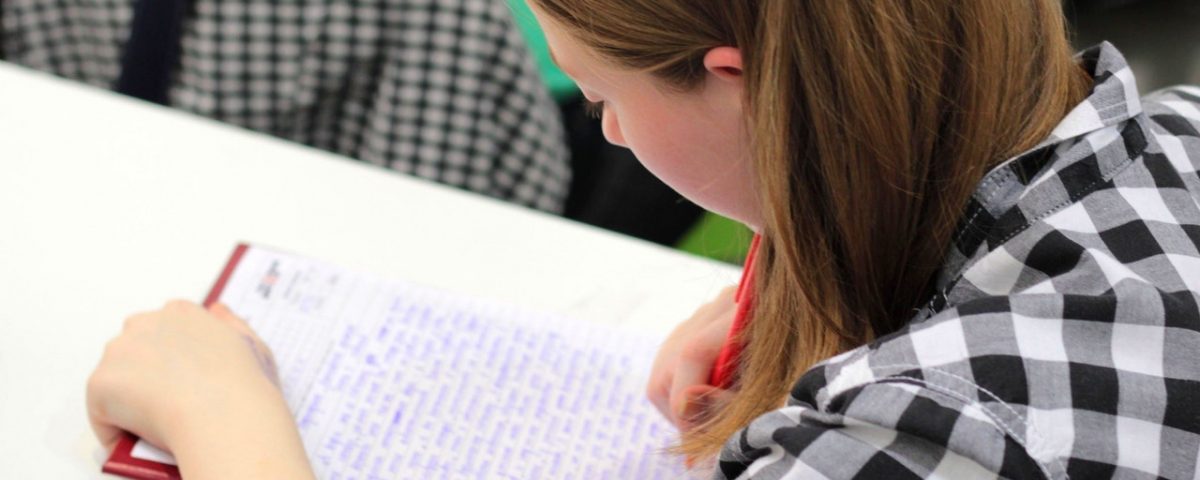How Tutoring Transforms the Learning Journey for Students with Disabilities

4 Guaranteed Ways to Score Low on the SAT
November 21, 2024
3 Reasons Why Your Student Needs to Take the PSAT
December 11, 2024When we think of tutoring, high-achievers looking to get ahead or students struggling to keep up often come to mind. But there’s another critical group that can benefit immensely from individualized support: students with learning disabilities. For those facing challenges like ADD, ADHD, or dyslexia, academic hurdles can feel daunting. Fortunately, one-on-one tutoring can empower these students, helping them not only to keep up with their peers but to unlock their full potential.
This article dives into the ways tutoring helps students with learning disabilities overcome barriers, build confidence, and develop a genuine love of learning.
How One-on-One Tutoring Relieves Pressure
Students with learning disabilities often face unique struggles in the classroom, where raising a hand to ask for clarification can feel intimidating or even embarrassing. Traditional classrooms are fast-paced environments, and students with ADD, ADHD, or dyslexia may feel they’re falling behind, which can lead to frustration and even lower self-esteem. For these students, tutoring offers a much-needed safe space to ask questions, revisit difficult concepts, and learn at their own speed—all without the pressures that come with a larger class.
In a personalized tutoring session, students get the instructor’s full attention, giving them the freedom to ask questions as often as needed and explore subjects more deeply. This focused, judgment-free support can significantly reduce stress and help students embrace learning as a positive, confidence-building experience.
Rebuilding Positive Relationships with Learning
School is meant to be a place of growth and discovery, but for students with learning disabilities, it can sometimes feel like a place of judgment. The frustration of underperformance and repeated setbacks often shapes their view of school as a negative experience, creating a cycle where they associate learning with feelings of inadequacy. Over time, these negative emotions can harm their motivation and lead to a strained relationship with education.
Tutoring can break this cycle. By working with a tutor who is not only skilled in the subject but also in understanding the unique needs of students with disabilities, these learners can experience education in a new light. Tutors can adjust their approach to fit each student’s pace, providing the patience and encouragement students need to see their strengths. Through these personalized sessions, students can build a positive relationship with learning, transforming it from a source of stress to one of accomplishment.
Building Supportive Connections Through Tutoring
In traditional classrooms, some students with learning disabilities may view teachers as distant figures—more like judges than allies. These students may struggle with feelings of embarrassment or frustration, believing that teachers simply see them as “different” or “challenging.” Tutoring sessions can help reshape this dynamic by creating a one-on-one environment where students feel genuinely seen and supported.
Tutors act as educational allies, giving students a new way to view and interact with educators. This supportive relationship can encourage students to open up, feel understood, and recognize that their instructors want them to succeed. As students begin to feel heard and valued, they are more likely to participate actively in their learning journey, carrying this positive shift back into their classroom experiences.
Tutoring Empowers Students to Achieve Their Potential
Students with learning disabilities are every bit as capable as their peers. Numerous studies highlight that learning disabilities do not equate to a lack of intelligence or potential; rather, they indicate a need for tailored learning strategies. With the right support, students with ADD, ADHD, dyslexia, and similar challenges can achieve remarkable success.
One-on-one tutoring can be the key to unlocking this potential. Tutors trained to recognize the unique challenges faced by students with disabilities can provide a pathway to overcoming academic struggles, allowing students to thrive. Whether it’s improving test scores, enhancing comprehension, or simply building self-confidence, tutoring can make all the difference.
Final Thoughts: Supporting Every Student’s Success
Tutoring offers a game-changing approach to learning for students with disabilities, enabling them to overcome obstacles, develop self-assurance, and build skills that will serve them for life. Every student deserves to feel capable and confident in their academic journey, and individualized tutoring can open doors to those crucial moments of understanding and achievement.
If you’re looking to help a student succeed, consider exploring tutoring options to see the benefits firsthand. And for more expert advice on supporting students with disabilities, don’t forget to subscribe to our blog—let’s make learning accessible and exciting for everyone.


